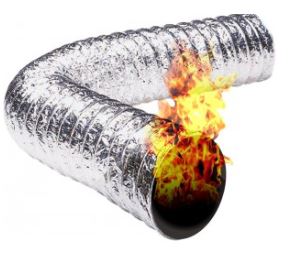Electrical fires are a serious threat to homes and businesses, causing significant damage and posing a risk to lives. Many electrical fires result from outdated wiring, overloaded circuits, or faulty electrical appliances. However, with proper precautions and maintenance, these fires can often be prevented.
If you are concerned about electrical safety in your home, consulting a Metairie Electrician can help ensure your electrical system is up to code and functioning safely. Professional electricians can identify potential hazards and offer solutions to reduce fire risks.
Common Causes of Electrical Fires
Understanding what causes electrical fires is the first step in preventing them. Some of the most common causes include:
1. Faulty Wiring
Old or damaged wiring is one of the leading causes of electrical fires. Wires can degrade over time, become frayed, or be damaged by pests, leading to sparks and overheating.
2. Overloaded Circuits
Plugging too many devices into a single outlet or power strip can overload circuits, leading to overheating and potential fire hazards.
3. Extension Cord Misuse
Using extension cords as permanent solutions instead of installing additional outlets increases the risk of fire. These cords can overheat if they carry more power than they are designed for.
4. Outdated Electrical Panels
Older electrical panels may not be equipped to handle modern power demands. Faulty circuit breakers may fail to trip when necessary, increasing the risk of overheating and fire.
5. Improper Use of Appliances
Using appliances with damaged cords or plugging them into incompatible outlets can lead to electrical malfunctions and fires.
6. Space Heaters and High-Wattage Devices
Portable space heaters and other high-wattage appliances draw a significant amount of power. If placed near flammable materials or plugged into inadequate outlets, they can easily start a fire.
Preventive Measures to Avoid Electrical Fires
Preventing electrical fires requires a proactive approach. Here are some essential safety measures homeowners in Metairie can take:
1. Schedule Regular Electrical Inspections
A professional electrician can inspect your home’s wiring, outlets, and panel to identify potential hazards. Regular inspections help ensure that all electrical components are functioning safely and efficiently.
2. Upgrade Outdated Wiring
If your home is older, it may have wiring that isn’t up to current safety standards. Rewiring your home can prevent overheating and reduce fire risks.
3. Avoid Overloading Circuits
Be mindful of how many devices you plug into a single outlet or power strip. If your home lacks sufficient outlets, consider hiring an electrician to install additional ones.
4. Use Surge Protectors
Surge protectors help regulate power flow and prevent electrical surges that could damage appliances and increase fire risks.
5. Replace Damaged Cords and Outlets
Never use electrical appliances with frayed or damaged cords. If an outlet sparks, feels warm, or has a burning smell, stop using it immediately and have it inspected by an electrician.
6. Use the Right Light Bulbs
Ensure that light fixtures use the correct wattage bulbs. Using bulbs with a higher wattage than recommended can cause overheating and potentially start a fire.
7. Be Cautious with Space Heaters
If you use a space heater, keep it at least three feet away from curtains, furniture, and other flammable materials. Always plug space heaters directly into wall outlets instead of extension cords.
8. Install Arc-Fault Circuit Interrupters (AFCIs)
AFCIs detect dangerous electrical arcing and shut off power before a fire can start. These devices are especially useful in older homes with outdated wiring.
9. Keep Electrical Devices Away from Water
Water and electricity are a dangerous combination. Avoid using electrical appliances near sinks, bathtubs, or other sources of water.
10. Educate Your Household on Electrical Safety
Make sure everyone in your home understands basic electrical safety rules, such as not overloading outlets, unplugging devices when not in use, and recognizing signs of electrical issues.
Recognizing Warning Signs of Electrical Hazards
Electrical systems often give warning signs before a major issue occurs. Pay attention to these indicators of potential electrical problems:
- Frequent breaker trips – If your circuit breaker trips regularly, it could indicate overloaded circuits or faulty wiring.
- Burning smells – A burning odor near outlets or appliances could signal overheating and potential fire risks.
- Flickering or dimming lights – This may indicate loose wiring or an overloaded electrical system.
- Buzzing sounds – Unusual buzzing noises from outlets or switches can signal electrical faults.
- Hot outlets or switches – Electrical components that feel warm to the touch should be checked immediately.
If you notice any of these warning signs, contact a professional electrician immediately to prevent further risks.
The Importance of Having Smoke Alarms and Fire Extinguishers
While prevention is the best way to avoid electrical fires, it is also essential to have safety measures in place in case a fire does occur.
- Install smoke alarms – Ensure smoke detectors are installed in every bedroom and on every floor of your home. Test them monthly and replace batteries regularly.
- Keep a fire extinguisher handy – A fire extinguisher rated for electrical fires (Class C) should be easily accessible in case of an emergency.
- Plan an evacuation route – Have a fire escape plan and make sure all household members know what to do in case of a fire.
Conclusion
Electrical fires can be devastating, but they are largely preventable with proper maintenance and awareness. By scheduling regular inspections, upgrading outdated wiring, using electrical devices safely, and recognizing warning signs, homeowners can significantly reduce the risk of fire.
Taking proactive measures to maintain your home’s electrical system not only protects your property but also ensures the safety of your family. If you have concerns about your home’s electrical safety, consulting a professional electrician can help you identify potential hazards and take the necessary steps to prevent future issues.



